Table of Contents
Introduction-A Tiny Dog with a Big Heart
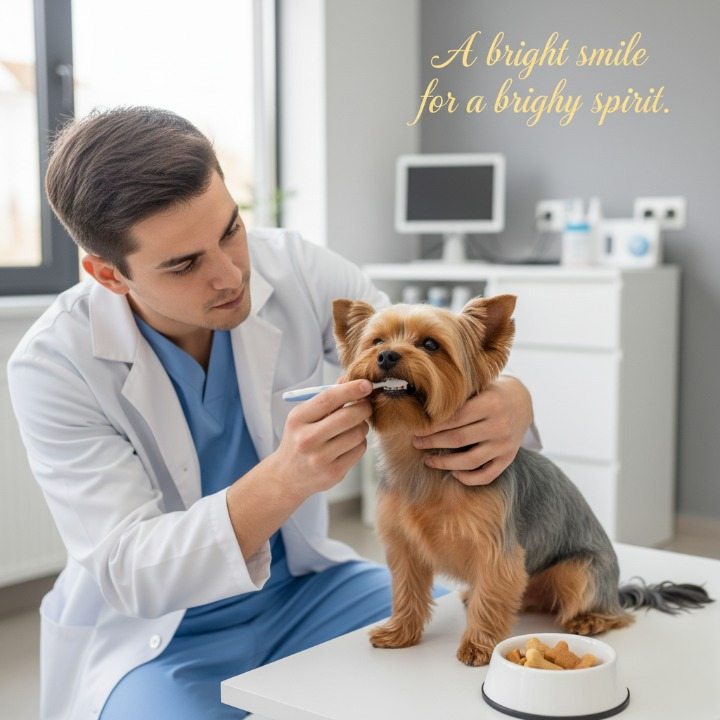
They are small dogs with big personalities. They are brave, confident, and full of energy. They are loyal to their families, affectionate, intelligent, and can sometimes be stubborn, so early socialization and training are essential for balanced behavior.
Origin and History of the Yorkshire Terrier
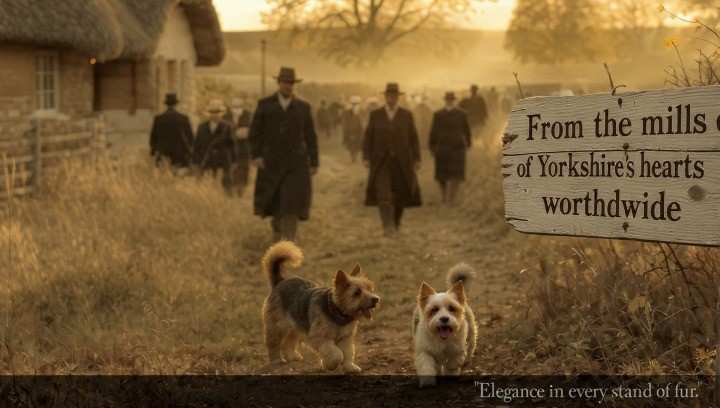
Originally bred in Yorkshire, England, during the Industrial Revolution to catch rats in textile mills, these tenacious little dogs were later refined into the elegant companions we know today, transitioning from working-class roots to beloved lapdogs of royalty and celebrities.
Yorkshire Terrier-Breed Characteristics and Physical Features
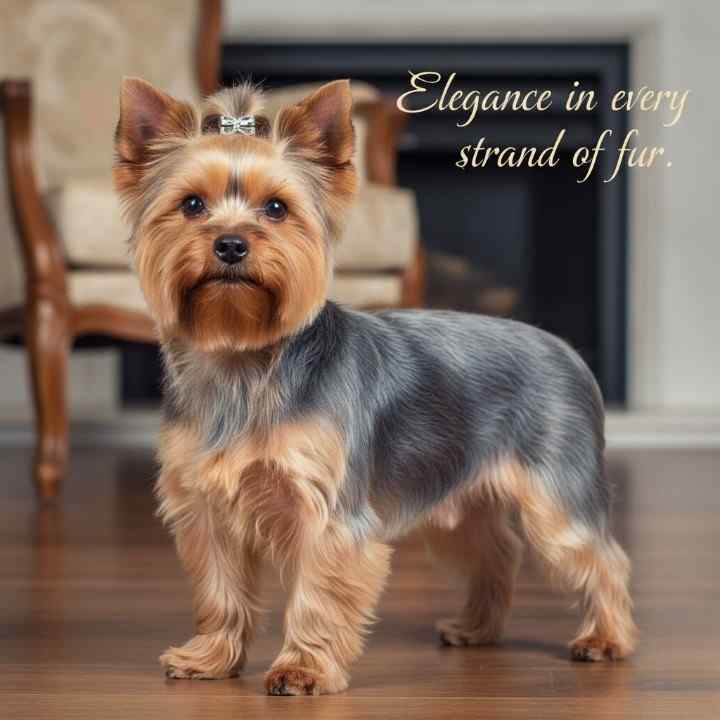
This is a compact toy breed, typically weighing under seven pounds. This petite breed boasts a fine-boned, well-proportioned frame that is surprisingly sturdy.
| Yorkshire Feature | Description |
|---|---|
| Size | Small |
| Height | 7–9 inches (18–23 cm) |
| Weight | 4–7 pounds (1.8–3.2 kg) |
| Coat Type | Long, silky, and straight |
| Coat Color | Blue and tan (puppies are black and tan) |
| Eye Shape | Medium-sized, dark, sparkling |
| Ears | Small, V-shaped, erect |
| Tail | Medium length, carried slightly higher than back |
| Life Span | 11–15 years |
| Physical Behaviour | Energetic, brave, affectionate, alert |
| Intelligence | Highly intelligent, stubborn at times |
| Socialization | Good with older children and other pets if trained |
| Barking Level | High; can be a good watchdog |
| Grooming Needs | High (needs regular brushing) |
| Shedding Level | Low |
| Exercise Needs | Moderate; enjoys short walks and play |
Personality and Temperament Of Yorkshire Terrier
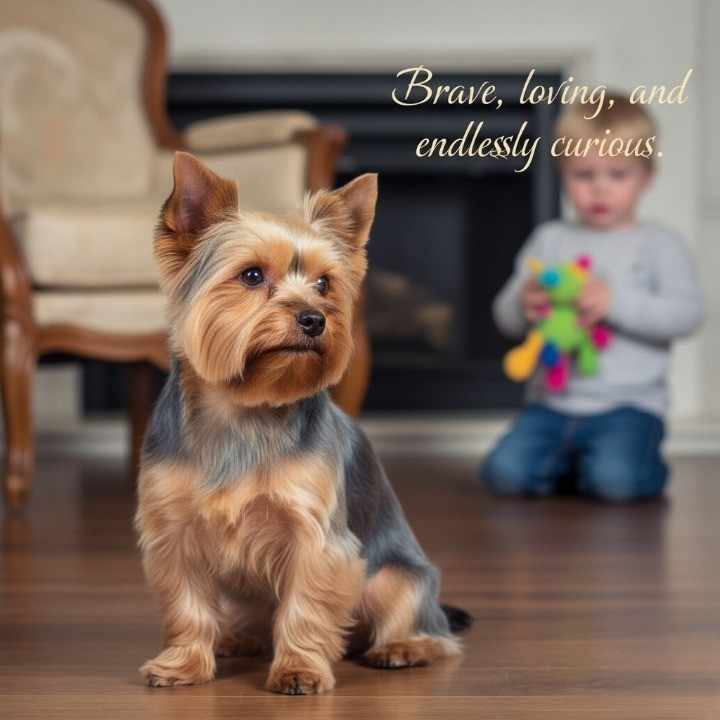
Their personality is a bold, confident blend of terrier tenacity and deep loyalty. A true companion, Their temperament is fiercely affectionate with its family but can be wary of strangers.
| Trait | Description |
|---|---|
| Affectionate | Mostly loves to snuggle and be close to family members |
| Loyal | Forms strong bonds with family members, often attached to one special person |
| Bold & Feisty | Confident and courageous despite small size, can be bossy |
| Intelligency | Smart and eager to learn but can be stubborn |
| Energy Level | Playful and lively, needs regular exercise and mental stimulation |
| Vocal | Naturally alert and barks to alert owners |
| Protective Nature | Acts as a small watchdog, wary of strangers and other dogs |
| Sensitivity | Can be anxious in unfamiliar or loud environments |
| Social | Enjoys family company but may need gradual introduction to others |
| Trainability | Trainable with patience and consistency, needs firm leadership |
| Behaviour with Children | Best with older children, requires supervision around young kids |
Choosing a Yorkshire Terrier
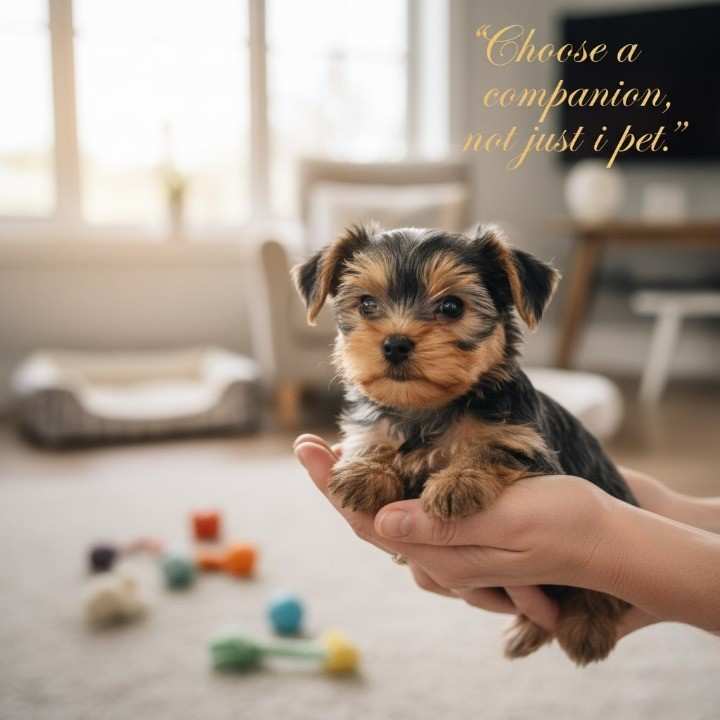
Prospective owners should seek a reputable source, ensuring them of a healthy, ethical environment. Always prioritize this breed from rescues or breeders who perform essential health screenings.
| Factor | What to Look For |
|---|---|
| Reputable Breeder | Choose breeders with health certifications and good reviews |
| Health Screening | Ensure puppies have been screened for common their health issues (patellar luxation, tracheal collapse) |
| Temperament | Seek puppies that are confident, playful, and social |
| Parent Health | Check health history of parents, including vaccinations and genetic tests |
| Size Expectations | Understand size can vary: standard they weigh 4-7 lbs; avoid extremely small (teacup) for health reasons |
| Socialization | Opt for puppies exposed to early socialization with people and other pets |
| Veterinary Care | Choose puppies with completed vaccinations and initial vet check-ups |
| Cost | Avoid unusually cheap puppies to reduce risk of poor health or unethical breeding |
| Environment | Evaluate breeder’s facility for cleanliness, space, and care quality |
| Adoption Options | Consider rescues or shelters for adoption before buying |
Bringing Your Yorkie Home
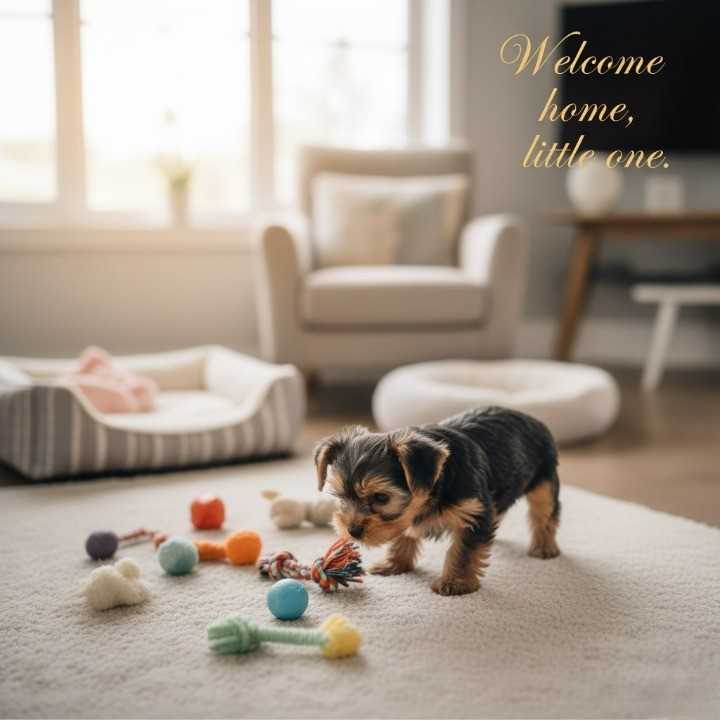
| Step | Details |
|---|---|
| Prepare Your Home | Set up a cozy, safe space with a comfortable bed, water, toys, and food |
| Puppy Proofing | Remove small objects, toxic plants, and electrical cords from puppies’ reach |
| First Vet Visit | Schedule a health checkup within the first few days after arrival |
| Diet Transition | Gradually switch to the food your breeder or shelter used to avoid tummy upset |
| Introduce Family | Allow calm, gentle interactions; supervise with young children |
| Establish Routine | Set regular feeding, play, and potty times to build structure |
| Socialization Start | Begin gentle exposure to environments, people, and sounds |
| Training Basics | Start simple commands and house training with praise and patience |
| Comfort and Reassurance | Spend quality time bonding; provide familiar toys or blanket from breeder |
| Monitor Health | Watch for any signs of illness or stress and consult your vet as needed |
Nutrition and Feeding Of Yorkshire Terrier Dog

| Life Stage | Energy Needs (Calories) | Protein | Fat | Feeding Frequency | Special Nutritional Needs |
|---|---|---|---|---|---|
| Puppy | ~400 calories/day | High (22-32%) | Moderate (10-25%) | 4-6 small meals/day (up to 3 months), then 3-4 meals/day | Growth-supporting nutrients, DHA for brain development. Small kibble size. Monitor calcium and phosphorus ratios. |
| Adult | 350-450 calories/day (based on activity) | Moderate (18-25%) | Moderate (10-20%) | 2 meals/day | Balanced maintenance diet to support energy levels and coat health. Maintain ideal weight to avoid obesity. |
| Senior | Slightly reduced calories | Moderate to high (20-25%) | Lower fat (8-15%) | 2 meals/day | Joint support supplements (glucosamine, chondroitin), antioxidants for immune health. Easy-to-digest proteins and fiber for digestive health. |
Grooming and Coat Care Of Yorkshire Terrier

| Grooming Aspect | Requirement / Description |
|---|---|
| Coat Type | Long, silky, fine hair |
| Brushing Frequency | Daily brushing to prevent tangles and mats |
| Bathing | Every 2-4 weeks using gentle dog shampoo |
| Trimming | Regular trimming around eyes, paws, and sanitary areas |
| Professional Grooming | Every 6-8 weeks for full grooming and coat styling |
| Ear Care | Clean ears weekly to prevent infections |
| Dental Care | Daily or every-other-day brushing to prevent dental disease |
| Nail Care | Trim nails every 3-4 weeks or as needed |
| Coat Shedding | Low shedding, hypoallergenic |
| Special Tips | Use conditioner to keep coat soft; avoid over-bathing to protect skin oils |
Dental Care Of Yorkshire Terrier

This breed tend to suffer from periodontal disease due to their small jaw size resulting in crowded teeth and rapid accumulation of plaque and tartar on their teeth. If dental disease bacteria happen to reach the bloodstream, it can lead to systemic issues in the heart, liver, and kidneys.
Home Care: The gold standard in your homecare protocol, for a Yorkie, is tooth brushing daily with a veterinarian approved toothpaste; followed by dental treats, or water additives as supplemental.
Professional Care: Annual veterinary dental exams, and yearly professional dental cleanings (under anesthesia), are critical for oral and overall health maintenance.
Exercise and Activity Needs For Yorkshire Terrier
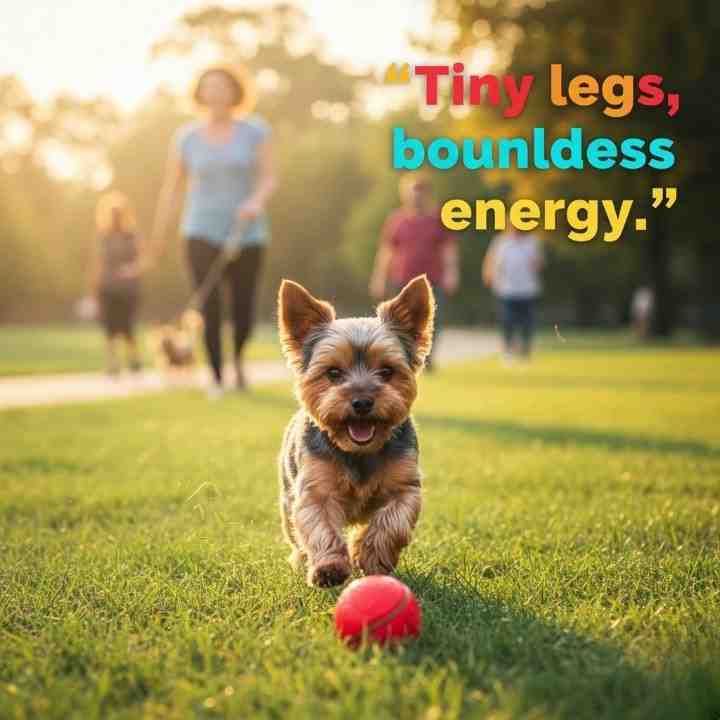
| Life Stage | Exercise Duration | Exercise Type | Frequency | Special Notes |
|---|---|---|---|---|
| Puppy | About 20-60 minutes total daily | Short walks, gentle play, mental stimulation | Multiple short sessions daily | Avoid strenuous exercise before 10 months to protect growth plates. Use safe, controlled environments. |
| Adult | 30-60 minutes per day | Brisk walks, play fetch, short cardio sessions | 2-3 walks plus daily play | Engage both physically and mentally to prevent boredom and destructive behavior. |
| Senior | 20-30 minutes per day | Slow walks, gentle play, light mental games | 1-2 walks daily | Monitor for signs of fatigue or joint pain, adjust exercise accordingly. |
Training and Socialization Of Yorkshire Terrier

- Method: Treat politely with positive reinforcement (treats, praise). Their intelligence can lead to stubbornness, so keep sessions short and engaging.
- Housebreaking: It Can be challenging. Try to maintain a strict schedule and reward success generously.
- Barking & Anxiety: This is often attention-seeking or alarm barking. “Capture” quiet behavior with rewards. For separation anxiety, gradual desensitization to being alone is key.
Common Health Issues in Yorkshire Terriers

| Health Issue | Brief Reason | Prevention and Care Tips |
|---|---|---|
| Patellar Luxation | Loose or dislocated kneecap causing pain and lameness | Avoid high-impact activities; early veterinary checkups; surgery if severe |
| Tracheal Collapse | Weakening of tracheal cartilage causing breathing issues and cough | Use harness instead of collar; maintain healthy weight; avoid irritants and stress |
| Dental Disease | Plaque buildup leads to gum infection, tooth loss | Regular teeth brushing; dental checkups; professional cleaning |
| Liver Shunt (Portosystemic Shunt) | Abnormal blood flow bypassing liver causing toxin buildup | Early diagnosis; special diet; medication or surgery as needed |
| Hypoglycemia | Low blood sugar, often in puppies causing weakness and seizures | Frequent small meals; monitor blood sugar; veterinary care if symptoms occur |
| Eye Problems (Lens Luxation, Dry Eye) | Hereditary conditions causing visual impairment or eye irritation | Regular eye exams; prompt treatment of symptoms; surgery for lens luxation |
| Bladder Stones | Mineral imbalance forming painful stones in the bladder | Controlled diet; plenty of water; vet treatment if stones develop |
Preventive Veterinary Care

Follow your veterinarian’s recommended schedule for core vaccinations (DAPP, Rabies) and parasite prevention (fleas, ticks, heartworm). Annual wellness exams are crucial; senior dogs (age 7+) benefit from semi-annual visits and routine blood work to detect early signs of disease.
Living Environment and Home Safety

| Aspect | Recommendations |
|---|---|
| Living Space | Suitable for apartments or houses; needs cozy sleeping area |
| Temperature | Sensitive to cold; provide warm bedding and avoid drafts |
| Indoor Safety | Remove small objects/toxins from their reach |
| Outdoor Safety | Secure fenced yard to prevent escape; always supervise |
| Hazards to Avoid | Electrical cords, toxic plants, human foods (chocolate, grapes) |
| Noise Sensitivity | Quiet space for rest; can be startled by loud noises |
| Social Interaction | Needs frequent human interaction; avoid prolonged isolation |
| Exercise Space | Secure area for daily play, walks, and mental stimulation |
| Furniture and Stairs | Use ramps or steps to protect fragile joints; avoid high jumps |
| Travel Safety | Use travel carriers or harnesses when transporting |
Travel and Transportation Of Yorkie

| Aspect | Recommendations |
|---|---|
| Travel Carrier | Use a well-ventilated, comfortable carrier sized for small dogs with secure locks |
| Car Travel | Use a dog seat belt harness or secured carrier for safety |
| Air Travel | Comply with airline pet policies; they often travel in cabin in approved carriers |
| Hydration | Provide water during travel breaks |
| Comfort | Bring familiar toys or blankets to reduce stress |
| Bathroom Breaks | Plan frequent stops for potty and stretching during long trips |
| Weather Considerations | Avoid extreme heat or cold; don’t leave them alone in cars |
| Identification | Use collars with ID tags and microchip |
| Socialization | Acclimate them to carriers and car rides ahead of time |
| Vet Check Before Travel | Ensure vaccinations and health checks are up to date |
Breeding and Reproduction Of Yorkshire Terrier

| Aspect | Details |
|---|---|
| Age to Breed | Females best bred after 2nd heat (~1.5-2 years old); avoid breeding before maturity |
| Ideal Breeding Age | Between 2 to 5 years; retire female from breeding around 5-7 years for health |
| Heat Cycle Duration | Lasts about 18-21 days with fertile period (estrus) 7-11 days including standing heat |
| Litter Size | Typically small, 2-4 puppies per litter |
| Gestation Length | Approximately 63 days |
| Mating Considerations | Female should ideally weigh more than male to reduce birthing complications; males fertile from ~6 months |
| Delivery | Natural birth common but cesarean may be needed due to small size and large-head puppies |
| Veterinary Care | Vet checks before breeding; monitor pregnancy by ultrasound or palpation |
| Retiring Female | Spaying recommended after breeding to prevent health issues like cancer and infections |
| Male Breeding | Males remain fertile longer but sperm quality may decline with age |
Yorkie Variations and Mixed Breeds
Standard Yorkie

The typical purebred is known for its silky coat and small size (~4-7 pounds, 7-9 inches tall).
Teacup Yorkie
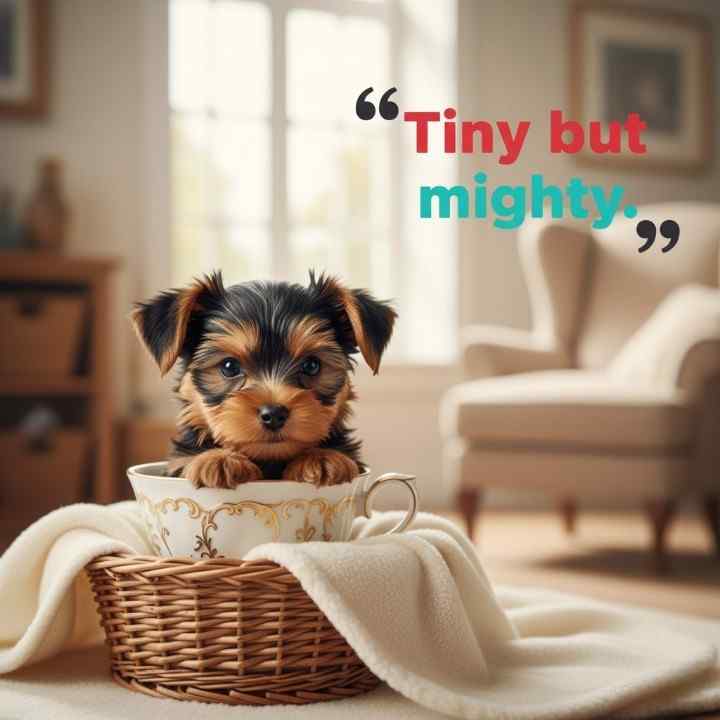
A very small variation, often under 4 pounds. Not officially recognized breed but popular among enthusiasts.
Toy Yorkie
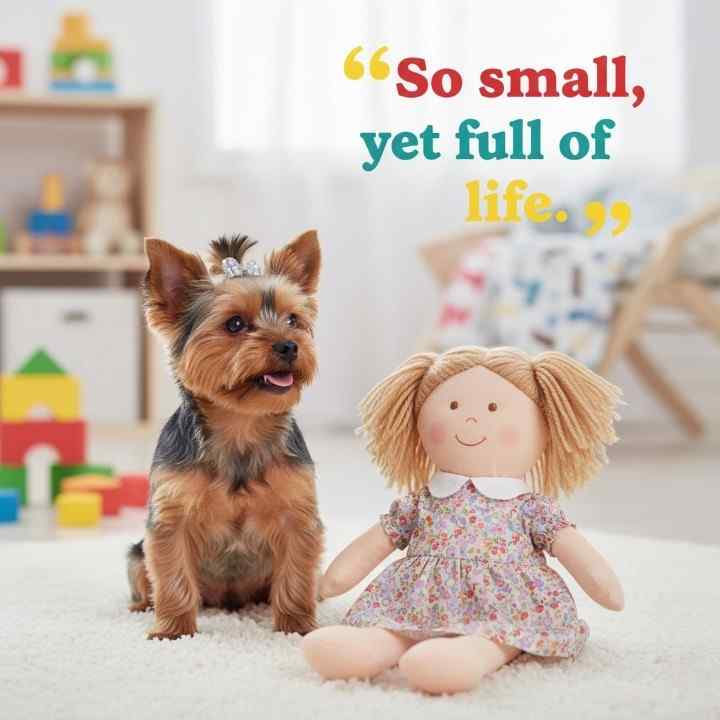
Slightly larger than Teacup, but still very small; bred for companionship.
Black & Tan Yorkie
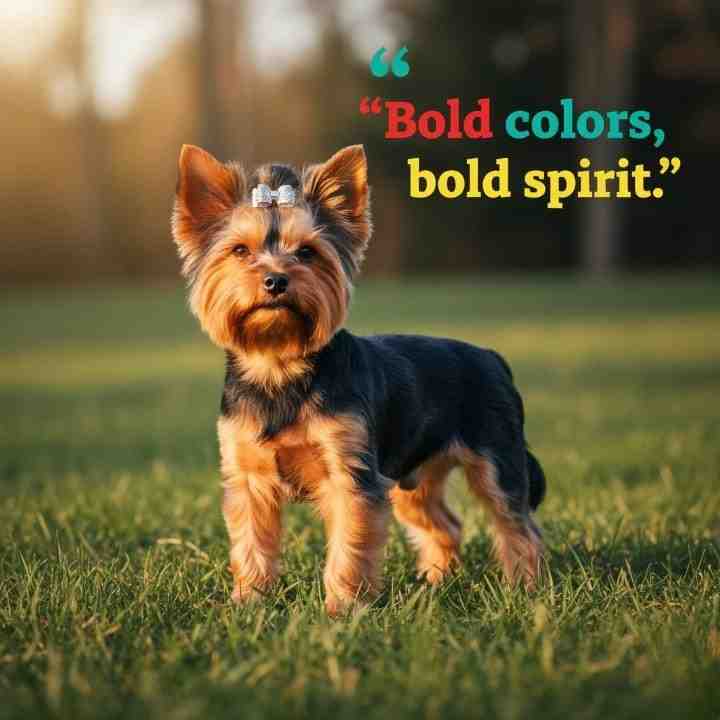
Some Yorkies are bred to have darker coat shades, especially during puppyhood (full coat turns blue and tan).
Behavioral Challenges and Solutions For Yorkie
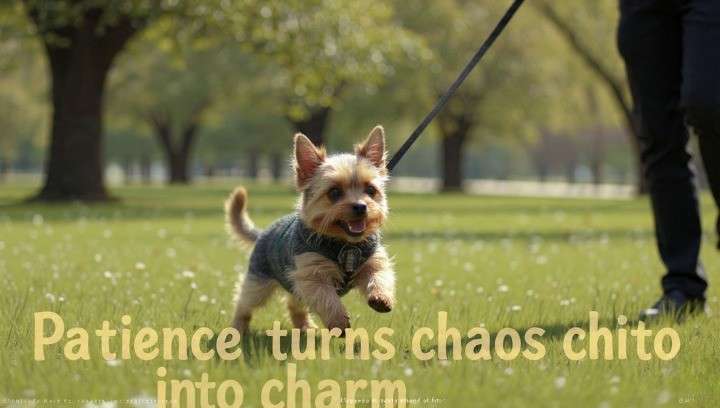
| Challenge | Description | Solutions and Tips |
|---|---|---|
| Excessive Barking | They tend to be vocal, barking at noises or strangers | Consistent training with positive reinforcement. Provide toys to reduce boredom. Avoid punishment that increases anxiety |
| Stubbornness | Intelligent but can be willful and independent | Use firm, patient training; short sessions with rewards; establish leadership with kindness |
| Separation Anxiety | Distress when left alone leading to destructive behavior | Gradual desensitization to alone time; safe space with toys; avoid leaving for long durations initially |
| Aggression to Strangers | Protective nature may lead to growling or snapping | Early socialization with people and pets; positive exposure; avoid forcing interactions |
| Resource Guarding | Defending food, toys, or space aggressively | Train trade-and-reward games; manage feeding and playtime routines calmly |
| Hyperactivity | High energy may lead to difficulty settling down | Balanced exercise and mental challenges; calm downtime routines; interactive toys |
What is Cost of Ownership Of Yorkshire Terrier

| Cost Aspect | United States (USD) | India (INR) |
|---|---|---|
| Purchase Price | $900 to $3,500 (standard pet-quality) | ₹15,000 to ₹90,000+ |
| Adoption Fees | $50 to $600 | N/A (varies by shelter/rescue) |
| First-Year Setup Cost | $1,000 to $2,000 | ₹30,000 to ₹60,000 approx. |
| Annual Maintenance | Around $1,800 | ₹18,000 to ₹36,000 approx. |
| Monthly Expenses | $100 to $150 (food, grooming, healthcare) | ₹1,500 to ₹3,000 (food, grooming, healthcare) |
| Veterinary Costs | $200-$400 yearly (routine care) | Varies, roughly ₹5,000 to ₹15,000 per year |
| Grooming Cost | $50 to $150 per session, 6-8 week frequency | ₹1,500 to ₹3,000 per grooming session |
Conclusion

They may look small, but they have a lot of charm. People who keep this dog know that this dog brings a lot of joy and energy to their lives and creates a beautiful atmosphere in the entire house. Its innocent face and playful nature attract everyone. If you are also planning to buy this pet, then this can be the right choice.
FAQs
Are Yorkshire Terriers hypoallergenic?
They shed less but are not completely hypoallergenic.
Are Yorkies good with children?
Best with older, gentle children due to their small size
Are Yorkies easy to train?
Yes, but they can be stubborn and need patience.
What do Yorkies eat?
High-quality dog food with occasional fresh fruits and veggies.
Should I get a teacup Yorkie?
No, teacups often have health problems due to extreme breeding.
How serious is tracheal collapse in Yorkies?
It causes breathing difficulties and requires weight management and sometimes surgery.
Can Yorkies get urinary stones?
Yes, mineral imbalances can cause painful bladder stones.
Do Yorkies have joint problems?
Yes, especially luxating patella and Legg-Perthes disease affecting mobility.
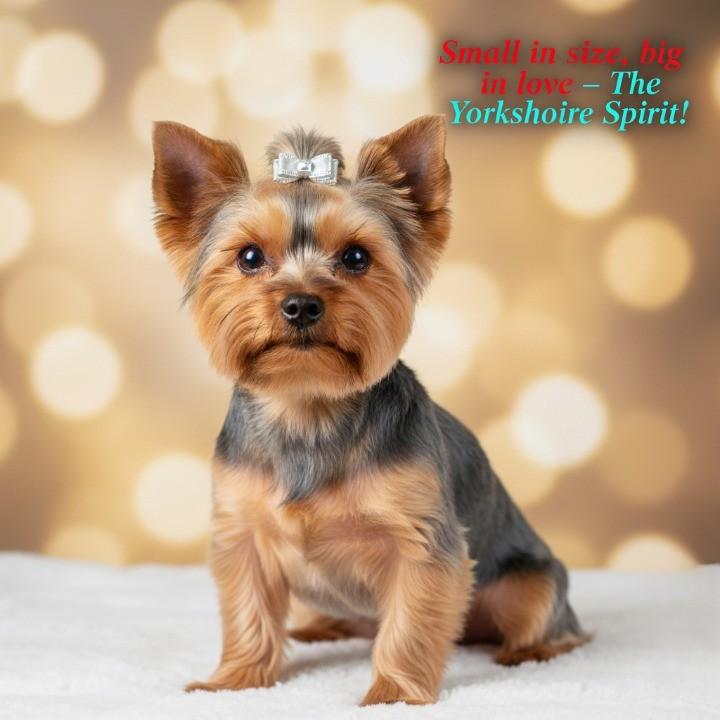
Awesome post.
I am regular visitor, how are you everybody?
This paragraph posted at this website is actually nice.